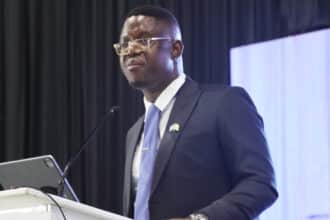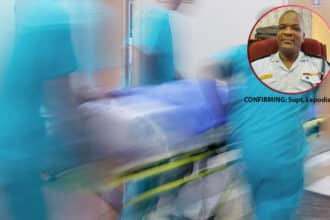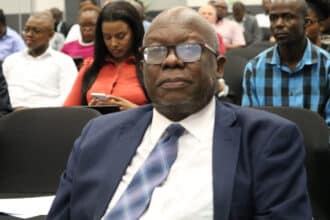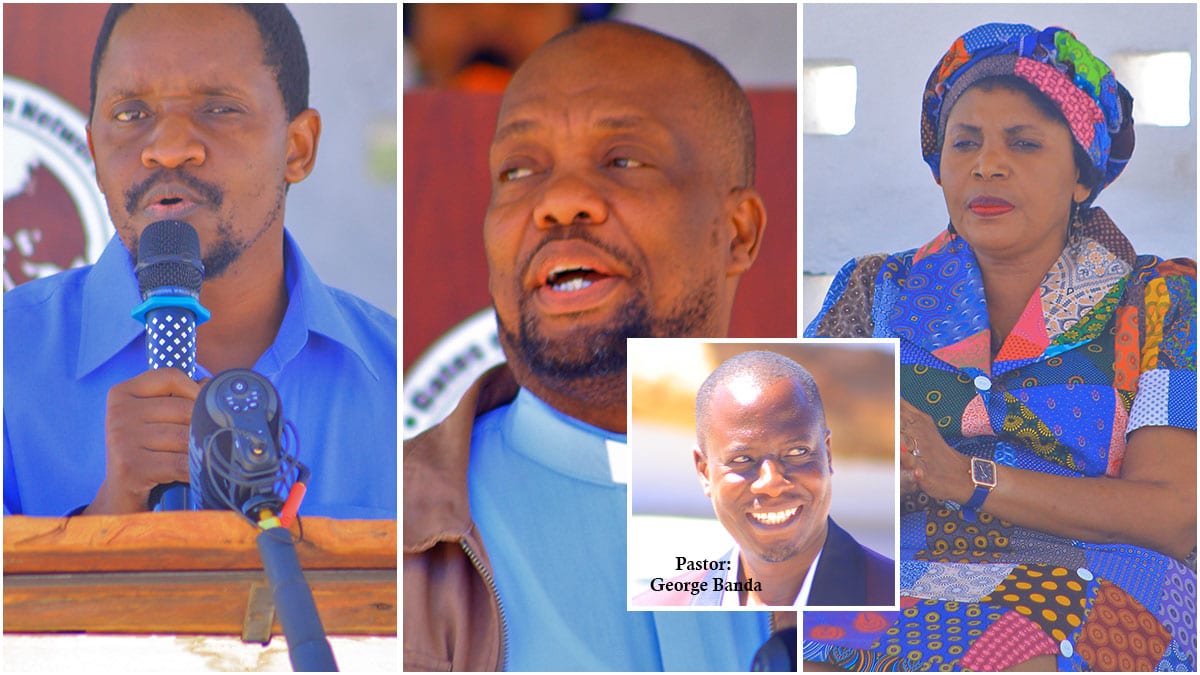Handsome and healthy, with a glowing smile and bright eyes that sparkle full of life, it is hard to associate the clean, well-spoken man that Dr George Banda is today with his troubled past.
A Pastor at River of Live Ministries in Maun, in his youth, Banda was hooked on drugs.
Opening up on his past as a drug addict at Saving Grace Ministries in Samedupe, where Drug Enforcement Agency (DEA) was addressing the Church, the man of God noted he was living proof it is possible to kick the habit, get clean and live a happy, productive life.
“I used to be on drugs. There came a point when my mother would call the police whenever I walked into her house. Putting me in cells did not work because I used to smuggle the drugs in – I will not say how because I do not want to teach anyone else how to do it,” said the Pastor, who doubles as the Deputy Chairperson of Ngamiland Ministers Fraternal.
Now 44, Banda revealed his addiction was at its worst in his late teenage years, between 1997 and 1999.
“I would sniff and even inject myself; the injection was to spite my mother and sniffing was to defy the police,” explained the clergyman.
Trapped in the clutches of drugs, the young Banda’s health and hygiene quickly deteriorated; all he cared about was getting his next fix.
His behavior became increasingly erratic and unpredictable as he pushed his loved ones away.
Fortunately, one person never gave up on him.
“My sister. One day she took my clothes, ironed them and asked me, ‘Do you like how you look?’ I said no and she kindly asked me to bath and to join her at church,” Banda recalled.
Salvation got off to a shaky start, however, as Banda took an instant dislike to the Pastor and his style of preaching.
“It was as though he was told about me! But it was my first time in church and I told myself that after the service I am going to find stones and hit him. But thank God before the church was out I was touched by the Holy Spirit. My life changed from that moment.”
With God in his heart, Banda was able to kick the habit, although he suffered with the after-effects for years to come.
His hands would continue shacking badly until 2003, which was around the same time his numbing body aches finally subsided.
“I was on home therapy by I was not tempted to go back [to drugs] as I was focused on church. In 2004 I started working and two years ago I got married. Today I can hold a pen without trembling,” he tells The Voice in a short interview outside church.
Desperate for his message of hope to be heard to help others stuck in a similar situation, Banda says it is love similar to the one he received from his now late sister that can compel addicts to quit.
“Putting me in cells did not work, my sister’s love and finding Christ did,” stressed the passionate pastor.
DEA was addressing pastors and the church as an activation ahead of anti-drug campaign which will be launched in Maun this Friday by Defence and Security Minister, Kagiso Mmusi.
Speaking at the same event, church overseer at Saving Grace Ministries, Resego Alias backed up Banda’s belief that love conquers many obstacles.
She revealed that at their church they have been helping 12 young people who were struggling to quit drugs. With love and patience, ten are clean while two are getting there.
“Free rehabilitation is in church,” added Elias.
Pastor Thato T.P Elias encouraged people to stop giving drugs fancy names as it entices young people into thinking they are a good thing to try.
“In medicine term we call them hallucinogens, because they cause people to hallucinate and live in an imaginary world; it totally changes the way they see, smell, taste, feel or think.”
The pastors were making a pledge to partner with government through DEA to fight drug and substance abuse within the church and communities in which they operate.
Some of the common drugs used in Botswana according to DEA Director for Public Education, Motshereganyi Sefanyetso include: dagga, Methcathinone (CAT) and crack cocaine.
These drugs are said to be given code names such as mothanyo, mavetane and meow meow for CAT, while crack cocaine is called madaena, letlapa and ‘eat some more’ and cannabis or dagga is referred to as: zolo, spane and tapole among other names.
Drugs are addictive and have very harmful effects to the body and mind and can lead to death.
In Botswana, punishment for possession of drugs can include imprisonment not exceeding 25 years and a hefty fine of P500, 000.
DEA says warning signs to look for when suspecting someone may be abusing drugs are:
- Emotional signs which may include: mood swings, depression, anxiety, hallucinations, anger for no reason, loss of interest in school or extra curricular activities, difficulty getting along with others, falling grades and poor academic performance and short attention span.
- Physical signs may include: red eyes, tendency to fall asleep even in class, tiredness, unclear speech, inattention in class or work, forgetfulness, neglect of personal hygiene and general appearance, trembling and uncoordinated movements.







